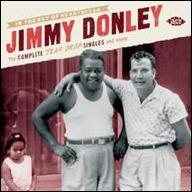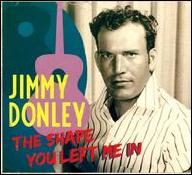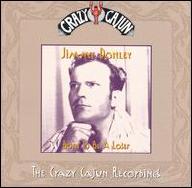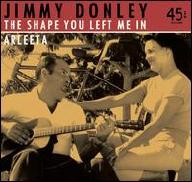Ah, but he could sing, and he could write songs, and his recorded legacy from the 1950s and very early '60s for Decca Records, Johnny Vincent's Ace Records, and Huey Meaux’s Tear Drop Records is a priceless treasure trove of swamp pop country rockabilly. Donley sang with a sometimes untranslatable diction, but the sheer pain and loneliness in his voice, particularly on his frequent and poignant love ballads, seemed to provide him with his only real shot at personal redemption. But Donley was as bad at the financial end of the business as he was at controlling his temper, and although his songs were covered and became hits by the likes of Fats Domino and Jerry Lee Lewis, Donley had long since sold the rights to the songs for up-front pocket change. He eventually signed over the rights to all of his songs -- past, present, and future -- to a con man calling himself Reverend J. Charles Jessup (later convicted of mail fraud) for what was probably no more than a weekend’s worth of beer money.
Donley's 34 years of pain, anger, and misery finally ended in 1963 when he committed suicide. The story could just end there, but Donley had very real talent as a singer and writer, and his Decca recordings in particular (tracked between 1957 and 1961) were smoothly and professionally done -- Owen Bradley produced them and used the best session musicians, including saxophonist Boots Randolph and guitarist Hank Garland, as well as the seemingly omnipresent Anita Kerr Singers. Donley songs like “Kickin’ My Hound Around,” the prescient “Born to Be a Loser,” the beautiful ballad “What Must I Do,” and Donley’s haunting signature tune, “The Shape You Left Me,” show an artist of uncommon clarity and vision. None of that clarity and vision trickled out into Donley’s personal life, however, and his story would be a cautionary tale if it hadn’t simply started out bad and then just went downhill from there. There wasn't much of an arc to it, really. It would appear that the only decision Donley ever made that made sense was to play and make music. He did that well. It was his only redemption. ~ Steve Leggett, Rovi
















